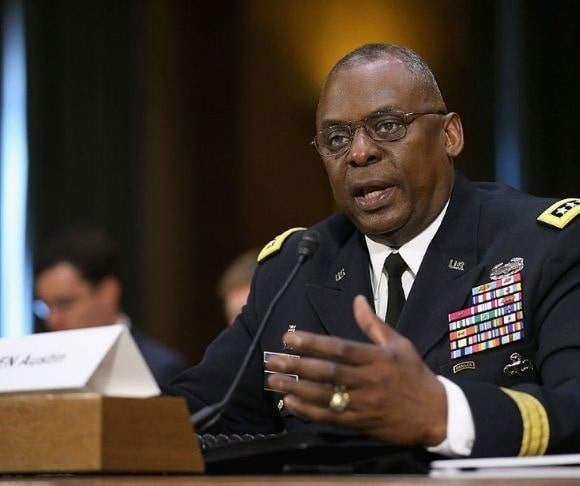In an initiative bolstering U.S. commitments to support European allies and friends, Secretary of Defense Lloyd Austin signed a six-year defense pact with Georgia Defense Minister Juansher Burchuladze. Russian aggression and threatening behavior pointed toward the former Soviet Union Warsaw Bloc has been the subject of Liberty Nation reporting. However, the recent agreement signals a willingness on the part of the United States to stand by those nations that entered the European sphere with the collapse of the Soviet Union. The new defense support agreement is significant, sending a strong signal to Moscow that the U.S. and NATO will stand in the way of any expansion of Kremlin ground forces into countries bordering Russia.
 Georgia is a particularly appropriate nation for the U.S. to join forces with, finding ways to train Georgian troops and carry out combined exercises. Unfortunately, the U.S. missed the signals back in the summer of 2008, when Russian ground forces bivouacked on the border of Georgia and carried out provocative maneuvers that led to an invasion and subsequent occupation of Georgian sovereign states. Russian troops took over Abkhazia and what had been a troublesome separatist region of South Ossetia, totaling 20% of Georgia’s territory. The Russian invasion of these provinces 13 years ago was not a surprise to the Georgians at the time and should not have been to the rest of Europe or America.
Georgia is a particularly appropriate nation for the U.S. to join forces with, finding ways to train Georgian troops and carry out combined exercises. Unfortunately, the U.S. missed the signals back in the summer of 2008, when Russian ground forces bivouacked on the border of Georgia and carried out provocative maneuvers that led to an invasion and subsequent occupation of Georgian sovereign states. Russian troops took over Abkhazia and what had been a troublesome separatist region of South Ossetia, totaling 20% of Georgia’s territory. The Russian invasion of these provinces 13 years ago was not a surprise to the Georgians at the time and should not have been to the rest of Europe or America.
At the 25th International Global Security Workshop sponsored by the Center for Strategic Decision Research held in Rome in June 2008, Georgia Vice Prime Minister Giorgi Baramidze delivered a speech that foretold the August invasion of that year. He explained regarding Moscow’s army maneuvers on Georgia’s border:
“Russia no longer even pretends to be performing peacekeeping duties. Instead, its new operation is of a clear military nature. Managed by the Russian defense ministry, the operation aims to enable large-scale military movements by reinforcing Russia’s military infrastructure in Abkhazia, Georgia. Unfortunately, Russia’s actions have virtually eliminated the prospects of a peaceful conflict-resolution process since they feed the separatists’ sentiments and ambitions. The more aggressive Russia has become in Abkhazia, the more rigid the separatist rebels are.”
Liberty Nation had a one-on-one interview with retired U.S. Air Force Colonel and former Chief of the Office of Defense Security Cooperation for Belgium and Luxembourg Fred Spivey, who was at the conference. Spivey explained, “It was as though the vice prime minister was making a plea to the audience of western nations to do something because what he was predicting was going to happen. And of course, it did.”
 The ruse under which the Russians sent armed forces into Georgia is now very familiar after Russia annexed Crimea and invaded eastern Ukraine in 2014. The Kremlin claimed the ethnic Russian population that makes up a portion of the citizenry of South Ossetia and Abkhazia were at risk of being persecuted by Georgians. Consequently, Moscow was obligated to send in “peacekeeping” forces. The incursion into Georgia prompted Georgian President Mikheil Saakashvili to counter the invasion, with Georgia’s ill-equipped army getting the worst of what was called the “five-day war.” The importance of Russia’s adventurism and Georgia’s response was a resetting of the geopolitical significance of Moscow’s reaction to the independence of former Soviet Union vassal states. According to a Michael Kofman retrospective on the “Russo-Georgian War,” published by War on the Rocks in August 2018:
The ruse under which the Russians sent armed forces into Georgia is now very familiar after Russia annexed Crimea and invaded eastern Ukraine in 2014. The Kremlin claimed the ethnic Russian population that makes up a portion of the citizenry of South Ossetia and Abkhazia were at risk of being persecuted by Georgians. Consequently, Moscow was obligated to send in “peacekeeping” forces. The incursion into Georgia prompted Georgian President Mikheil Saakashvili to counter the invasion, with Georgia’s ill-equipped army getting the worst of what was called the “five-day war.” The importance of Russia’s adventurism and Georgia’s response was a resetting of the geopolitical significance of Moscow’s reaction to the independence of former Soviet Union vassal states. According to a Michael Kofman retrospective on the “Russo-Georgian War,” published by War on the Rocks in August 2018:
“Although few understood it at the time, this war heralded an important transition in international politics. This brief conflict presaged the return of great-power politics and the end of the post-Cold War period. In 2008, Moscow demonstrated the will and ability to actively contest the US vision for European security, veto NATO expansion in its neighborhood, and challenge Washington’s design for a normative international order where small states can determine their own affairs independent of the interests of great powers.”
Consequently, what may seem now as not much more than a re-exchange of military-to-military marriage vows, there is more significance to the U.S.-Georgia military agreement. Secretary Austin said:
“I’m honored to join Minister Burchuladze in signing a memorandum of understanding on the Georgia Defense and Deterrence Enhancement Initiative. This initiative marks a new phase of our bilateral security cooperation, and it demonstrates the US commitment to supporting Georgia.”
Don Jacobson, writing for United Press International, wrote: “The pact is specifically aimed at helping Georgia ‘defend its sovereign territory,’ made necessary because Russian troops continue to occupy the regions of South Ossetia and Abkhazia.” Furthermore, the cooperation agreement is designed to assist the Georgia Defense Ministry in fielding a more effective and efficient armed force while being interoperable with NATO.
Building a bulwark of nations capable of deterring Russian expansionism is essential for NATO and Europe. Moreover, it demonstrates to Moscow that America does have the resolve and commitment to stand in the way of the Kremlin as it moves to intimidate in those Warsaw Pact countries lost when the Soviet Union dissolved. Similar initiatives by the U.S. military in the future will go a long way in re-establishing America’s credibility in defying potential threats.
The views expressed are those of the author and not of any other affiliation.
~ Read more from Dave Patterson.









